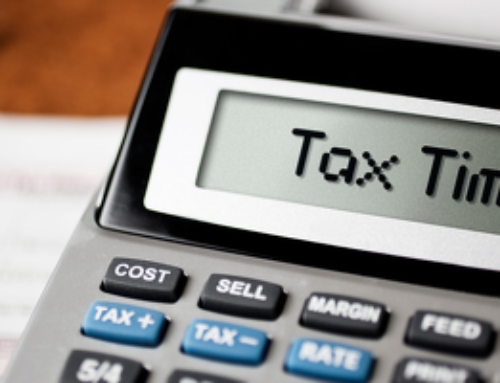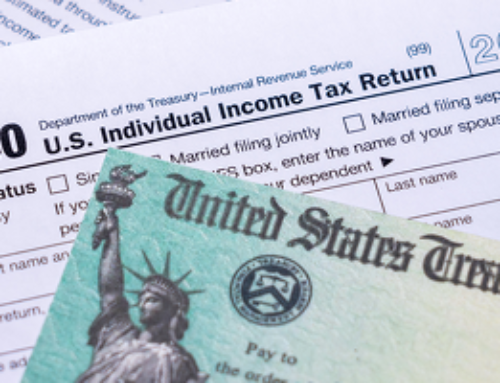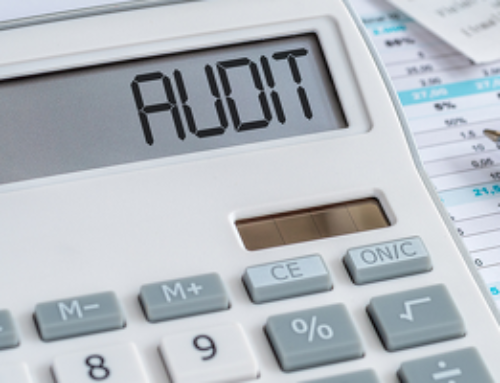Finance is undoubtedly the life-blood of any business venture. But did you know that we need to incur a multitude of expenses before our business is actually up and running? Sound scary, right? Don’t lose your heart just yet; because you can write-off the start-up costs of your business. The good news is there are several expenses pertaining to a business start-up that can be deducted from the taxable income, once it becomes operational.
Let us take a look at what does business start-up cost mean. Later we shall proceed to identifying their types, methods of writing-off such start-up expenses and the documentation procedure.
- What are the Business Start-Up Costs?
The start-up cost of a business can be broken down into two broad categories as follows.
1. The Expenses Incurred for Creating the Business
This category of start-up costs includes the ones incurred for laying the foundation of your business and making it ready to serve the target customers. Consider an example where you want to open a cake shop. Opening a cake shop is certainly not a cakewalk. There is an array of start-up expenses that you will need to incur, especially if you are starting from scratch.
– Fees for procedural formalities such as acquiring a sales permit.
– Renting the facility / shop.
– Furnishing the facility and the display area.
– Travel expenditure associated with locating the suppliers of baking equipment, accessories and ingredients.
– Purchasing the necessary baking equipment, such as ovens, mixers, refrigerators, bench tops, weighing scales, baking and decorating accessories.
– Stocking up the ingredients needed to make the cakes.
– Interviewing, hiring and training the staff. Paying them the salary while the business is still at its infancy.
– Advertisement expenses.
Hence, these are the expenses that you will need to incur to create your own cake shop and make ready for business.
2. The Expenses Incurred for Investigating a Creation or Acquiring an Active Business Establishment
Continuing with the previous example of setting up a cake shop from scratch, the following expenses would fall under this category.
– Discussing the proposition and business plan with an expert and your accountant. This will need to you shell out money for paying the fees for the advisory services of these professionals.
– Similarly, the cost associated with research, product analysis and finding the suitable site for establishing the business also come under the umbrella of start-up expenses.
Consider another example where you wish to buy an existing cake shop, which is already in business and earning profits. The cost incurred on examining the proposition, whether or not to buy the cake shop falls under this category. The cost of accounting and legal expenses that you might incur after the finalization of the deal also amounts to business acquisition cost.
- What are the Deductible Start-Up Costs?
There are a myriad of costs that go into the making of a business establishment. It is obvious for the novice to get confused about what start-up expenses are allowed for deduction. To make things simple for you, we have created a brief list of expenses that the IRS allows for deduction from the taxable income.
– Expenses pertaining to market research and survey, feasibility study, etc.
– Fees of legal advisors involved in helping you set up the business.
– Fees of tax consultants and accountants.
– Expenses related to recruitment, selection and training of staff.
– Salaries and wages.
– Advertising expenses.
– Expenditure on purchasing office supplies.
– Rent paid for the production facility or commercial space.
The above expenses must have been incurred before you are open for business, to be qualified as start-up cost. Another point that must remember is that the cost of small equipment qualifies as the start-up cost. However, the cost of heavy equipment or machinery is recovered by depreciating the asset over a period of time. Talk to your tax consultant as to what equipment would come under the umbrella of start-up cost.
- The Costs that are not Allowed for Deduction
Now that you know what expenses are allowed for deduction, please take a look at the expenses that the IRS doesn’t allow for deduction.
– Expenditure incurred on research and experimental activities.
– Interest paid on loans borrowed for funding the business operations.
– Real estate taxes.
However, these costs can be deducted from the taxable income as ordinary business costs as and when they are incurred.
- Method of Start-Up Cost Deduction
There are two components of the method of availing deduction for start-up cost of your business. IRS allows you to deduct a portion of the start-up cost in the first year of commencement of business. The remaining portion is amortized over the next 15 years / 180 months of business, beginning from the month in which your business becomes operational.
The amount that you can deduct in the first year itself depends on the total start-up cost. Please read the subsequent section to know about the ceiling prescribed by the IRS.
- How much Deduction does the IRS allow?
The IRS has prescribed some limits on availing deductions in the first year of opening the business based on the actual start-up cost. You can claim the deduction of up to $5,000 in the first year itself. However, the start-up cost of your business should not exceed $50,000.
In case where the start-up cost exceeds $50,000, the claim of $5,000 shall diminish by the amount the start-up cost exceed $50,000. Let’s take a look at the following examples for a better understanding.
Example 1 – When the start-up cost is less than $50,000
Consider a scenario where you successfully open your cake shop for business on 25 October. You incurred $4,500 of start-up cost before your cake shop became operational. You can avail full deduction of the start-up cost in the first year itself. Since the amount of deduction claimed is less that $5,000, there is no cost left to be amortized for the next 180 months.
Example 2 – When the start-up cost is equal to $50,000
Let’s consider another situation, wherein the start-up cost for your cake shop is equal to $50,000. You can claim the maximum permissible deduction of $5,000 in the first year of commencement of business. The remaining $45,000 of the start-up cost would be amortized over the period of next 180 months. The amortization deduction shall amount to $250 per month ($45,000/180). Moreover, you shall also avail the amortization deduction of $750 in the first year, for the reason that your cake shop has been in business for 3 months (October, November and December). Hence, your total deduction for start-up cost in the first year would be $5750.
Example 3 – When the start-up cost is greater than $50,000
Assume that the start-up cost of your cake shop is $54,000. In this case, the amount of maximum permissible deduction in the first year will diminish by the amount the start-up costs exceeds $50,000, i.e., $4,000. Hence, instead of $5,000 you can avail the deduction of $1,000 only. The remaining $49,000 shall be amortized over the period of 180 months. The amortization deduction shall amount to $272.22 per month ($49,000/180). Additionally, you shall avail the amortization deduction of $816.66 in the first year, because your cake shop is in business for 3 months. Hence, your total deduction for start-up cost in the first year would be $1816.66.
Likewise, when your start-up cost is equal to or greater than $55,000, the deduction of $5,000 phases out completely. Under such circumstances, you can only amortize the entire start-up cost over the period of 180 months.
- What are the Organizational Costs?
The IRS allows small businesses to claim an additional deduction apart from the usual start-up cost deduction. This deduction can be claimed for organizational costs.
Organizational costs are the specific set of expenses that come into picture while you open a business as a partnership firm or a corporation. It is necessary that you incur these costs before the first tax year comes to an end. The organizational costs are chargeable to the capital account. The IRS allows for deduction for a part of organizational expenses and amortization of the remainder amount over a period of 15 years or the number of years the partnership firm or corporation remains in business, whichever is earlier.
Following is the list of organizational expenses that the IRS allows to be amortized.
1. Organizational Costs For Partnership Firms
– Fees of the law professionals involved in the drafting and finalizing the partnership deed.
– Fees of the accounting professionals involved in creating the partnership.
– Does not include:
– Cost of adding in partners and terminating the partnership of existing members at the subsequent stage.
– Laying down norms pertaining to contractual responsibilities of the members of partnership.
2. Organizational Costs For Corporations or LLCs
– Fees pertaining to procedure of incorporation.
– Fees of the law professionals and accountants involved in the incorporation procedure.
– Remuneration of the Directors provisionally holding the position.
– Does not include:
– Cost pertaining to issuing securities.
– Reassigning the charge of assets to the corporation.
Rules for deduction of organizational costs are similar to those of start-up costs. The maximum permissible deduction in the first year of commencement of business if $5,000 provided the total organizational cost does not exceed $50,000. When the organizational costs exceed $50,000, the deduction for $5000 will diminish by the amount the organizational costs exceed $50000. The remainder amount can be amortized over the period of 180 months.
Whether or not to Opt for Deduction in the First Year?
The America Job Creation Act, 2004 presumes that the business owners would like to opt for maximum permissible deduction for the start-up cost in the first year itself, whatever amount they are eligible for. But it is entirely your call whether or not to avail the deduction in the first year itself. Instead of availing deduction, you can choose to amortize the entire start-up cost over the course of next 180 months. This makes financial sense for businesses that do not yet generate substantial revenue.
Therefore, you should analyze your current income, make realistic revenue forecast for the foreseeable future and make informed decisions. If you think that your business will pick up in the near future, amortization of total start-up cost is your best bet. It will help reduce your taxable income by leaps and bounds and save you hundreds of dollars on tax bite.
What if the Deal doesn’t finalize?
Many of you might have this particular question in mind. What if you incur investigation expenses for setting up a new business or purchasing an existing business; and it doesn’t work out? Can you still claim any deduction for such expenses on your taxable income? The answer is that you can.
You can claim deduction of such investigation expenses as personal expenses. You can mention them in the Schedule A of Form 1040 under the head ‘miscellaneous expenses’. However, you must have incurred the investigating expenses for evaluation of a particular business proposition. It could be for creating a new business or buying an existing one. You cannot claim deduction for the investigating expenses that you incurred on any random business idea.
What IRS Forms will you need?
– IRS Form 1040. You will need Schedule C, E or F depending upon the type of the start-up cost of your business.
– IRS Form with Schedule A, if you wish to claim deductions for investigation costs under personal expenses in case you business proposition didn’t take-off.
– If you opt for amortization of start-up costs and depreciation of certain equipments, you will need IRS Form 4562.
It doesn’t matter, how high or low the start-up cost of your business is. There is always a way to save a lot of money on tax, and we just taught you a few. We hope this information ironed out your start-up cost deduction dilemmas and gave you a clear picture of what you can and cannot write-off when you kick-start your new business v





